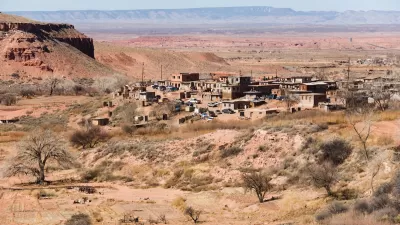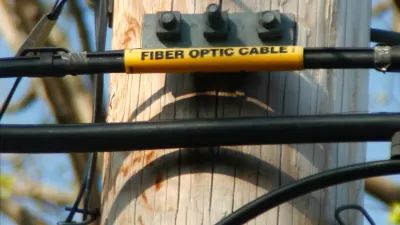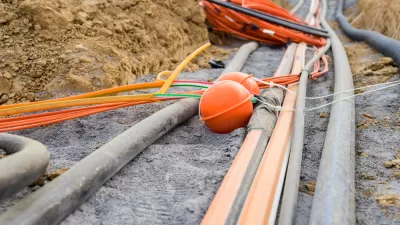As connectivity becomes increasingly important to everyday life, policymakers at all levels can take action to streamline broadband infrastructure projects and improve internet access for all communities.

As the federal government prepares to distribute billions in funding to broadband infrastructure, among other projects, Bruce P. Mehlman outlines three important principles for ensuring "maximum return on our broadband investments."
First, Mehlman cautions that "one size does not fit all" when it comes to infrastructure investments. "Policymakers focusing on broadband connectivity need to consider a myriad of conditions, from population density, average incomes, geology, and topography to the range of competitive offerings already available, when determining program design and objectives."
Second, Mehlman recommends close coordination between federal, state, and local officials, as well as private sector providers who bring "critical knowledge." According to Mehlman, "States can benefit from appointing 'broadband tzars' to focus maniacally on closing digital divides, investigate availability shortcomings and their causes, proselytize adoption, and actively coordinate efforts among all players."
Mehlman also recommends prioritizing connectivity and streamlining the approval process for broadband infrastructure projects. "Unfortunately, it’s a lot more expensive to build infrastructure in the United States than in most other countries. While multiple reasons explain America’s higher costs and longer delays, bureaucratic inertia stands as one of the most significant barriers to successful broadband deployment."
Mehlman concludes that "If the great broadband buildout is to succeed, policymakers need to understand that Congress appropriating the money is not the end, but merely the end of the beginning."
FULL STORY: This is America’s broadband moment. Don’t screw it up

Planetizen Federal Action Tracker
A weekly monitor of how Trump’s orders and actions are impacting planners and planning in America.

San Francisco's School District Spent $105M To Build Affordable Housing for Teachers — And That's Just the Beginning
SFUSD joins a growing list of school districts using their land holdings to address housing affordability challenges faced by their own employees.

The Tiny, Adorable $7,000 Car Turning Japan Onto EVs
The single seat Mibot charges from a regular plug as quickly as an iPad, and is about half the price of an average EV.

With Protected Lanes, 460% More People Commute by Bike
For those needing more ammo, more data proving what we already knew is here.

In More Metros Than You’d Think, Suburbs are Now More Expensive Than the City
If you're moving to the burbs to save on square footage, data shows you should think again.

The States Losing Rural Delivery Rooms at an Alarming Pace
In some states, as few as 9% of rural hospitals still deliver babies. As a result, rising pre-term births, no adequate pre-term care and "harrowing" close calls are a growing reality.
Urban Design for Planners 1: Software Tools
This six-course series explores essential urban design concepts using open source software and equips planners with the tools they need to participate fully in the urban design process.
Planning for Universal Design
Learn the tools for implementing Universal Design in planning regulations.
Smith Gee Studio
City of Charlotte
City of Camden Redevelopment Agency
City of Astoria
Transportation Research & Education Center (TREC) at Portland State University
US High Speed Rail Association
City of Camden Redevelopment Agency
Municipality of Princeton (NJ)





























